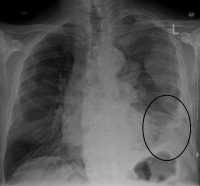Cancer occurs when cancerous cells in one area of the body reproduce rapidly and invade surrounding cells, tissue, and organs. Occasionally, these cells can spread to other parts of the body. Symptoms, treatments and the prognosis will depend on the type and stage of the cancer.
Give them emotional support
Your parent is probably as confused and overwhelmed as you are, if not more. Offer them a comforting ear and allow them to talk through how it is affecting them, their concerns, their treatment options, and their wishes.
Offer assistance, but don’t force it. Being too helpful could end up with your parent feeling a loss of control or independence. Organize what type and level of
support you can offer, sustainable to their wellbeing, and yours.
Offer spontaneous and scheduled companionship to help them to feel a sense of normalcy and provide opportunities to spend time together. If you both decide you should accompany them to their physician’s appointments and treatments, take
notes, and don’t be scared to speak up if you have a question.
 Try to understand what they’re going through
Try to understand what they’re going through
Take the time to understand the individual symptoms that they are experiencing and suggest proven solutions to relieve and manage.
For example, the symptoms of mouth or esophageal cancer will be very different from that of any other part of the body. Namely, these cancers can cause loss of the ability to chew and swallow (medically referred to as dysphagia), which are alleviated using a thickener in food and beverages. In contrast, individuals suffering from cancer of the spine are more likely to have trouble mobilizing, which would be improved by a walking aid.
Managing conditions like cancer begin with a full understanding. Read about the origin of
SimplyThick Easy Mix and see the value in understanding health conditions from a patient perspective.
(more…)



















 Catharina Svanborg M.D., Ph.D.
Professor at Lund University Department of Laboratory Medicine,
Division of Microbiology, Immunology and Glycobiology
Founder/Chairman of the Board at HAMLET Pharma
MedicalResearch.com: What is the background for this study?
Catharina Svanborg M.D., Ph.D.
Professor at Lund University Department of Laboratory Medicine,
Division of Microbiology, Immunology and Glycobiology
Founder/Chairman of the Board at HAMLET Pharma
MedicalResearch.com: What is the background for this study?











